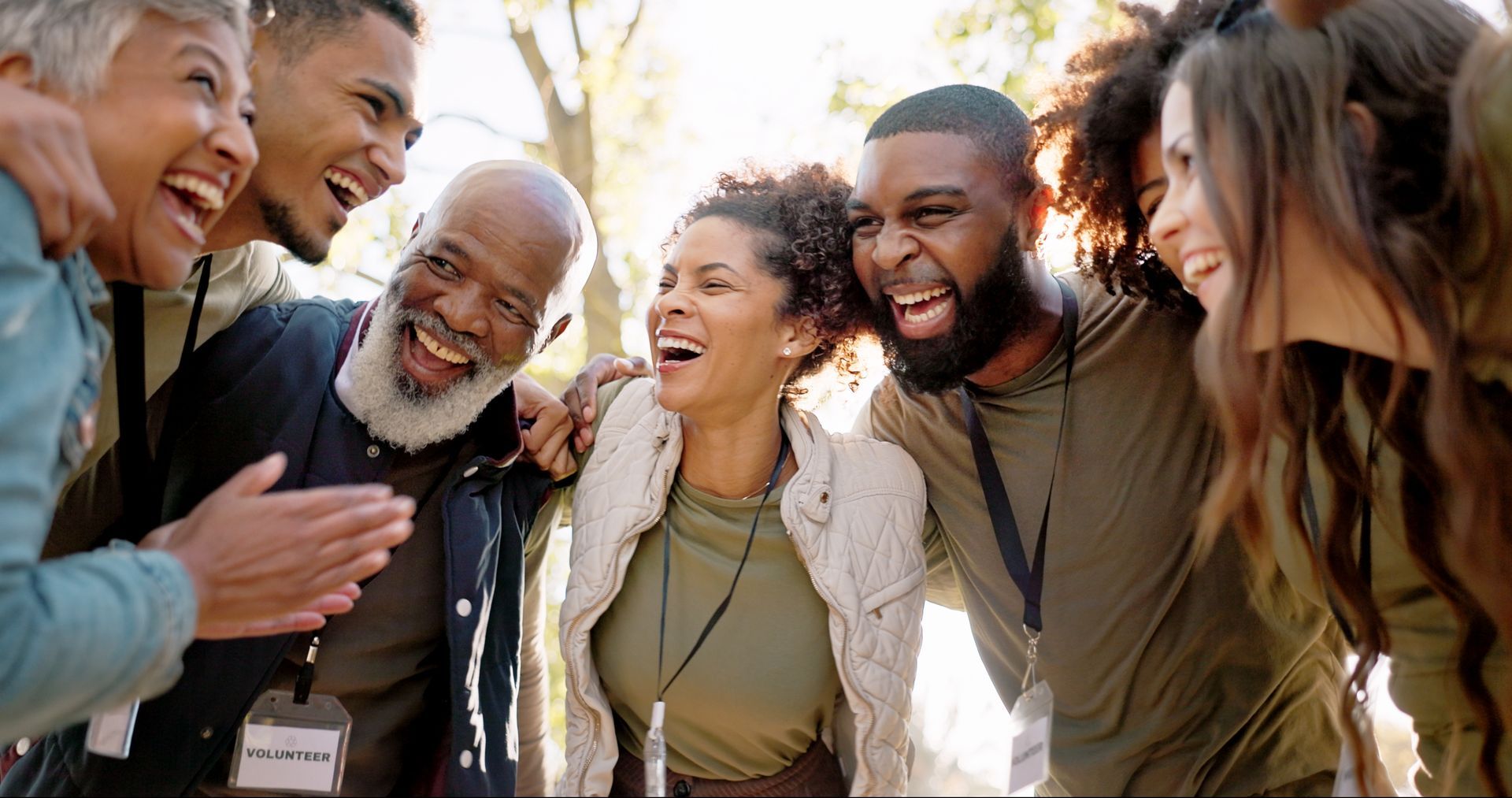How to influence positive outcomes in reentry
The art of listening.
Good conversations generate well-being, feelings of closeness, shared effort, and productivity. And difficult conversations -- when people disagree or disclose something controversial -- can produce similar positive outcomes if they happen under supportive circumstances.
How people talk to one another (i.e., through words and tone of voice) is important in influencing conversation outcomes. But what can the listener do to shape the conversation? Quite a lot, it turns out.
It is easy to picture a good listener. This person may remain quite as their partner speaks; they might wait for the speaker to complete a sentence before contributing their own thoughts.
During the conversation, a good listener avoids looking at their phone, maintains good eye contact, and exhibits facial expressions and a body posture that conveys interest and curiosity. Therefore, the listeners’ attentional attitude creates space in the conversation for speakers to talk.
However, “high-quality” listening involves more than simply being silent and creating space. The listener has power in the conversation and can contribute verbally and non-verbally in ways that actively shape the interaction.
In this article, I will explore the meaning of “high-quality” listening from motivational, social, and psychological perspectives. Furthermore, I will argue that listening supports a speaker's basic psychological needs for autonomy and relatedness. I will also consider the implications of listening and its outcomes in the context of peer support and reentry.
You might also like this blog about peer mentoring.
High-quality listening.
High-quality listeners convey three qualities to their listeners: undivided attention, comprehension, and positive intention.
Listeners show that they are attending to the speaker through various verbal and non-verbal behaviors without interrupting them (i.e., eye contact, open posture, and facial expressions).
High-quality listeners also communicate that they comprehend what the speakers say by paraphrasing conversational content and by asking open-ended and clarifying questions. As they do this, high-quality listeners convey their positive intention by exhibiting a non-judgmental attitude toward the speakers, providing some measure of validation, and through facial expressions that convey a level of interest and curiosity.
It is worth noting that an important part of high-quality listening is that listeners must be truly genuine to be perceived as good listeners. Listening cannot be reduced to simply performing a series of techniques from an automated script; the techniques must be used with genuine interest and care for the speaking individual. Research shows that speakers are adept at detecting when listeners are non-genuine and do not respond well in such circumstances (Tyler, 2011).
Learn more about our full training on effective listening (and more) as a peer support specialist here.
High-quality listening promotes well-being.
Self-determination theory (Deci & Ryan, 2000) asserts that people have three basic psychological needs that, when satisfied, encourage motivation, psychological growth, and well-being. These needs can be supported or frustrated as a function of individuals’ social experiences (e.g., conversations).
The first is the need for autonomy, or feeling a sense of volition in one's actions and self-expression, such that one experiences behaviors to come from within the self rather than from external forces or internally imposed judgments and pressures (Ryan, Deci, Grolnick, & La Luardia, 2006).
The second need is relatedness, which refers to feeling close or connected to others.
The third is the need for competence, which refers to feeling effective in activities and capable of pursuing and achieving meaningful goals (Deci & Ryan, 2000).
When these psychological needs are met, individuals experience well-being (Ryan & Deci, 2017), engage with others openly and non-defensively, and pursue activities with energy and perseverance.
It is easy to see how high-quality listening could be an effective strategy in the peer-support relationship in recovery and re-entry as individuals seek to rebuild their lives and make positive life choices.
High-quality listening supports reentry.
High-quality listening is crucial for understanding someone else’s perspective, involving undivided attention and asking open-ended questions. Supporting someone’s values and interests and offering a meaningful rationale also requires high-quality listening to attend to the person’s values and interests and understanding how to supply a meaningful rationale for that person. It seems then that one cannot provide proper support without listening well.
Of the three psychological needs, the most proximal and listening-specific may be autonomy, the sense of feeling make choices, freedom in self-expression, and behaving authentically in line with one’s values, beliefs, and emotions (Deci & Ryan, 2000). When individuals feel that there is high-quality listening, they feel understood and that their perspective has been taken. They are also volitional in guiding or co-guiding a conversation with their conversation partner, and they can express themselves authentically without feeling pressured or judged.
In a conversation, speakers can feel understood by sensing that their listeners attended to and comprehended the perspective, idea, or feeling they shared. This positive relational quality of caring for, valuing, or aligning with the speaker (which is likely relationship- or domain-specific) takes understanding to a deeper level to convey that the speakers, not just their views, have been understood.
Both levels (understanding the view and understanding the individual) are likely important, but feeling truly understood and validated by another may be a particularly powerful catalyst for positive experiences and behaviors.
In providing this relational climate, high-quality listening can make speakers feel safe to disclose thoughts, feelings, or personally relevant information (Castro, Kluger, & Itzchakov, 2016) that they may not otherwise reveal for fear of rejection, stigmatization, or disagreement that feels threatening.
Alongside autonomy need satisfaction, listening satisfies the need for relatedness. Speakers who feel heard feel that they are connected with their listeners, encouraged and fortified by their listeners, and have a partner in the conversation (Itzchakov et al., 2021), all of which promote relational valuing, that is, a sense of closeness and intimacy with the good listener (Deci & Ryan, 2014).
Thus, because high-quality listening fosters genuine self-disclosure and sharing in a space free from judgment, this form of listening can create an intimate, close relationship in which the speakers feel close and connected to their listeners.
Providing more direct evidence, early experimental research integrating listening and self-determination theory has found that listening promotes both autonomy and relatedness needs satisfaction. Both offer explanatory power for positive outcomes in the reentry process.
By being consistently available, providing a listening ear, and showing clients that they are worth the effort they invest, peer supporters who are high-quality listeners can be key sources of positive support for formerly incarcerated men and women.
Develop your listening skills and influence positive outcomes in reentry. Try our $25.00 self-paced, on-demand mini-course available at https://labarberalearning.talentlms.com/catalog
About LaBarbera Learning Solutions
LaBarbera Learning Solutions (LLS) is a leading independent evaluation consulting firm that partners with health, education, and human services agencies to improve lives. LLS offers consulting services and solutions that help rehabilitation and re-entry programs promote participant success, improve programs and processes, and optimize community flourishing. Learn more about our services.
References
Castro, D. R., Kluger, A. N., & Itzchakov, G. (2016). Does avoidance-attachment style attenuate the benefits of being listened to? European Journal of Social Psychology, 46, 762–775.
Deci, E. L., & Ryan, R. M. (2000). The” what” and” why” of goal pursuits: Human needs and the self-determination of behavior. Psychological Inquiry, 11(4), 227–268.
Ryan, R. M., Deci, E. L., Grolnick, W. S., & La Guardia, J. G. (2006). The significance of autonomy and autonomy support in psychological development and psychopathology. John Wiley.
Tyler, J. A. (2011). Reclaiming rare listening as a means of organizational re-enchantment. Journal of Organizational Change Management, 24(1), 143–157.
Reis, H. T., Clark, M. S., & Holmes, J. G. (2004). Perceived partner responsiveness as an organizing construct in the study of intimacy and closeness. In D. J. Mashek & A. P. Aron (Eds.), Handbook of closeness and intimacy (pp. 201–225). Lawrence Erlbaum Associates Publishers.










